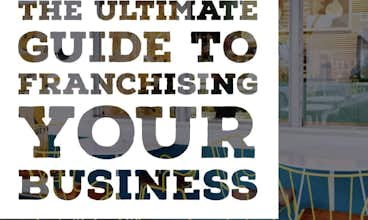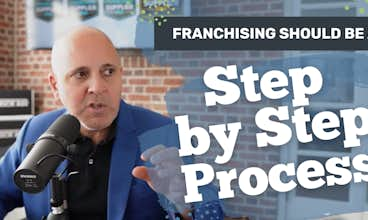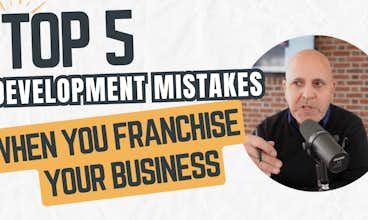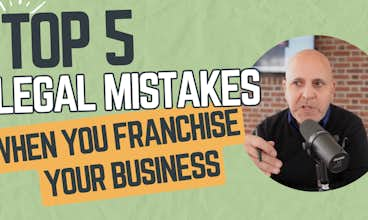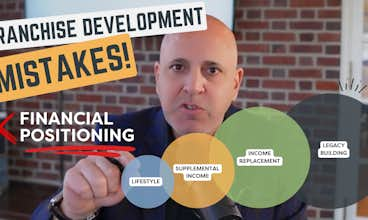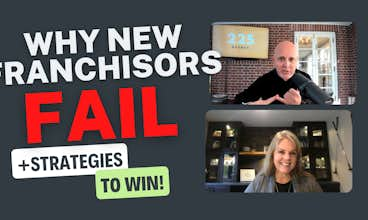Franchising a Food Truck and Mobile Business
Food trucks, trailers and mobile service businesses have the potential for creating great franchise investments and opportunities. The reasons include lower start-up costs, more flexible operating hours, and targeted events that can generate higher margins and more profitability than traditional businesses. But when it comes to franchising food truck and mobile business, too many new franchisors are making mistakes in the franchise development process.
The mistake? They're developing their FDD and franchise offering as if their mobile business were a traditional fixed-location brick and mortar business. The end result is missed opportunity and lost traction that occurs because the franchise offering does not reflect and support the underlying operational advantages and opportunities afforded by a mobile business.
When franchising a food truck and mobile business, your FDD and franchise offering should include or, at the very least, consider incorporating the following features:
- Multi-Territory Scalability
- Minimum Royalty Structures
- Data Driven Financial Performance Representations
- Special Events and Out-of-Territory Opportunities
1. Multi-Territory Scalability
Franchise buyers may have different goals. One franchisee may be looking to buy a single truck and territory to create supplemental income while another franchisee may be looking to acquire multiple territories and to create an income producing business.
During the franchise development process, an important strategy to consider is a multi-territory offering. Under this multi-territory structure a franchisee can buy one territory or multiple territories and within the FDD and franchise agreement the franchisee's development obligations including, the introduction of new trucks and trailers, can be set based on an agreed upon development schedule.
2. Minimum Royalty Structures
Because food trucks and mobile businesses have the potential to serve as supplemental income and, potentially, income replacement businesses, it's important to adopt a royalty structure that helps to prevent franchisees from underperforming, i.e., some franchisees may be happy or satisfied with supplemental income and, for personal reasons, may not be working hard or conducting enough events or operating hours within a territory.
To prevent this, it's important to consider a royalty structure that is not only based on a percentage of a franchisees sales but also a fixed fee royalty structure (i.e., the minimum of a fixed dollar amount each month) that is not designed to be punitive but is designed to ensure that the franchisee consistently operates within his or her territory.
This fixed fee royalty can be adjusted for seasonal markets and can scale and be increased based on the number of territories that the franchisee operates in. When structured correctly the minimum fixed fee royalty will act as a self-policing mechanism and may encourage underperforming franchisees to either elevate their performance levels or even offer to give back their territories and allow you to resell to a better performing franchisee. The goal is to avoid underperformance.
3. Data Driven Financial Performance
When developing your FDD Item 19 financial performance representations, it's critical that your Item 19 and financial performance representations properly align your territory data with the operations of your corporate owned food trucks or trailers.
Within Item 19, data points should be focused on Gross Sales, Gross Profit, Average Sale Per Transaction, Territory Sizes, Sources of Revenue, and Territory based unit economics.
4. Special Events and Out of Territory Opportunities
Corporate and recurring accounts are becoming important profit centers and features for food trucks and mobile businesses. Your FDD should reserve your rights as a franchisor and includes specific rules that allow you, as franchisor, to manage contracts with corporate accounts and the rules that franchisees must follow in servicing these accounts. Similarly, your FDD should include specific programs and rules as to how franchisees may or may not service out of territory customers and how special events like food trucks, festivals, and outer markets with captive markets are handled.
When franchising your food truck, trailer, or mobile business it's critical that you build an FDD and franchise program that reflects the scalable nature of your business. Don't make the mistake of treating your business as if it were a traditional restaurant or retail outlet. It's so much more!
